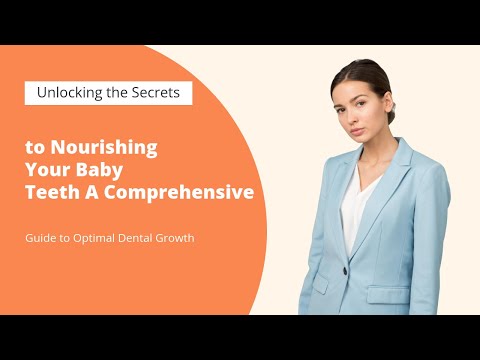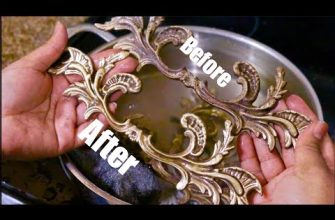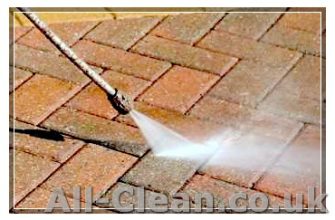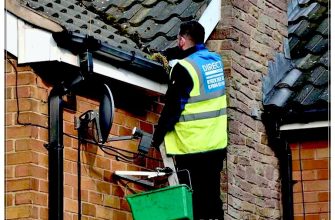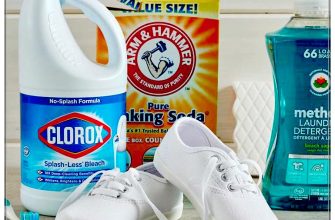
Caring for your baby’s teeth is of utmost importance in maintaining their overall health. It is crucial to establish good oral hygiene habits early on to prevent dental problems in the future. Starting dental care from a young age will help your child develop positive dental habits and ensure they have a healthy smile for years to come.
So, what are the best techniques to care for your baby’s teeth? The first step is to start dental care early. Even before their first tooth appears, you can start cleaning your baby’s gums. Use a clean, damp cloth or a soft infant toothbrush to gently wipe their gums after each feeding. This will help remove any bacteria or food particles and reduce the risk of infection.
Once your baby’s first tooth erupts, it’s time to start brushing. Use a small, pediatric toothbrush with soft bristles and a rice-sized amount of fluoride toothpaste. Brush your child’s teeth two times a day, making sure to clean every tooth and the gum line. Remember to use gentle, circular motions and avoid brushing too hard as it can harm the gums.
As your child grows older, you can gradually increase the amount of toothpaste to a pea-sized amount. It’s essential to supervise their brushing until they are around 6 years old to ensure they are brushing properly. You can make brushing more fun by using toothbrushes with their favorite characters or singing a catchy toothbrushing song.
In addition to regular brushing, it’s important to visit a pediatric dentist by the age of 1 or within six months after their first tooth erupts. The dentist will conduct a thorough examination of your baby’s teeth and gums, identifying any potential problems and providing necessary treatments or preventive measures.
Many common dental problems in infants and toddlers include tooth decay, gum disease, and bad breath. To prevent these issues, it’s important to avoid giving your baby sugary drinks before bedtime, and never put them to bed with a bottle. Taking precautions, such as using a pacifier properly and avoiding unnecessary exposure to bacteria, will also contribute to good oral health.
In Texas, dental care for babies is explicitly covered under Medicaid up to the age of 1. This means that families in Texas have access to dental check-ups, cleanings, and treatments without any out-of-pocket expenses. It’s crucial to take advantage of these benefits and ensure your baby’s teeth are well-taken care of.
In conclusion, caring for your baby’s teeth starts even before their first tooth erupts. By conducting proper oral hygiene routines, visiting a pediatric dentist, and taking necessary precautions, you can ensure your baby’s mouth stays clean and healthy. Start early, stay consistent, and remember that developing good dental habits from a young age will set a positive foundation for your child’s future oral health.
- Importance of Early Dental Care
- Key Takeaways:
- Establishing a Dental Hygiene Routine
- Brushing Your Baby’s Teeth
- Taking Precautions
- Visiting the Dentist
- Keeping Up with Oral Care
- Choosing the Right Toothbrush and Toothpaste
- Healthy Diet for Strong Teeth
- The Role of Diet
- What to Include in Your Baby’s Diet
- Precautions to Take
- Are Baby Tongue Cleaners Worth It?
- The Positive Benefits of Baby Tongue Cleaners
- How to Use a Baby Tongue Cleaner
- Potential Problems with Baby Tongue Cleaners
Importance of Early Dental Care
Taking care of your baby’s teeth is essential for their overall health and well-being. The importance of early dental care cannot be emphasized enough. By starting good oral hygiene habits from an early age, you can reduce the risk of dental problems and help your child maintain healthy teeth throughout their life.
When your baby gets their first tooth, it’s time to start caring for their oral health. Even though baby teeth are temporary, they play a crucial role in speech development, chewing, and maintaining proper alignment for the permanent teeth. Neglecting a child’s oral health can lead to tooth decay, pain, and potential future dental issues.
To clean your baby’s mouth, you can use a soft-bristled toothbrush or a tongue scraper designed for infants. Make sure to be gentle, as their gums can be sensitive. A simple and effective way to clean their mouth is by using a damp cotton cloth or gauze to wipe their gums and tongue after feedings.
It’s important to avoid sharing utensils or using saliva to clean pacifiers, as this can transfer harmful bacteria to your baby’s mouth. Additionally, be wary of common bad habits, such as putting your baby to bed with a bottle containing sugary drinks or giving them foods that are high in sugar and acids, as they can lead to tooth decay.
Taking your child to their first dental visit is also crucial for their oral health. The American Academy of Pediatric Dentistry recommends that a child should have their first dental check-up by the age of one. Pediatric dentists are specially trained to care for children’s teeth and can provide valuable advice on how to maintain good oral hygiene habits at home.
Regular dental cleanings are important to remove plaque and tartar buildup, which can lead to tooth decay and gum disease. These cleanings should ideally be done twice a year. However, your child’s dentist will determine the frequency based on their individual needs.
By starting early and conducting regular dental check-ups, you are helping your child establish positive oral health habits that will last a lifetime. Remember, prevention is always better than treatment when it comes to oral health.
Key Takeaways:
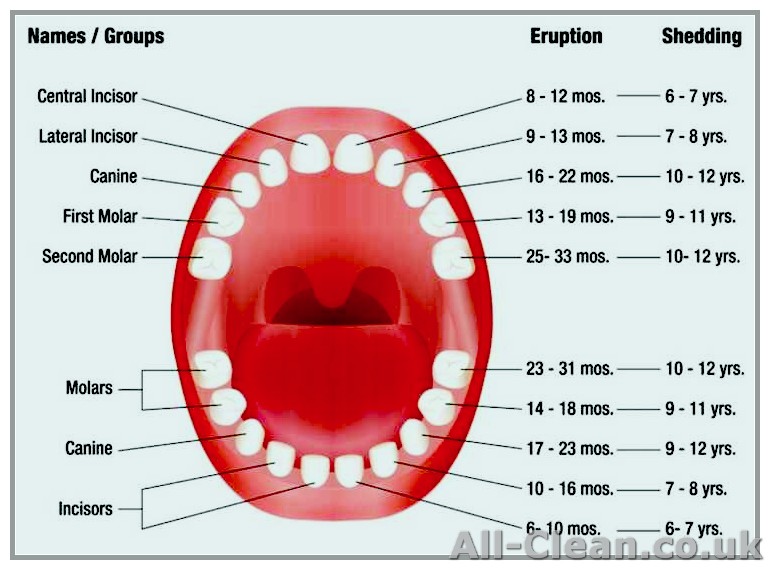
- Start caring for your baby’s oral health as soon as their first tooth appears.
- Use a soft-bristled toothbrush or tongue scraper designed for infants to clean their mouth.
- Avoid sharing utensils and clean pacifiers with saliva to prevent the transfer of harmful bacteria.
- Avoid giving your baby foods that are high in sugar and acids.
- Take your child to their first dental visit by the age of one.
- Regular dental cleanings are important to remove plaque and tartar buildup.
- Help your child establish positive oral health habits that will last a lifetime.
Establishing a Dental Hygiene Routine
When it comes to caring for your baby’s teeth, establishing a dental hygiene routine from a young age is crucial. By starting early, you can help prevent dental problems and instill good oral care habits that can last a lifetime.
Brushing Your Baby’s Teeth
It is never too early to start brushing your baby’s teeth. As soon as the first tooth appears, you should begin brushing. Use a baby-sized toothbrush with soft bristles and a small head to gently clean the teeth and gums. Avoid using a regular toothbrush and toothpaste with fluoride until your baby is at least 2 years old, unless specified by your doctor.
To make brushing a positive experience for your baby, be patient and make it fun. Sing a song or watch a short video together to keep your baby entertained. Brush twice a day, once in the morning and once at night, and be careful not to brush too hard or cut your baby’s gums.
Taking Precautions
There are some precautions you can take to prevent dental problems in your baby. Avoid putting your baby to bed with a bottle or sippy cup filled with sugary liquids, as this can lead to tooth decay. Clean your baby’s gums after each feeding by gently wiping them with a clean, damp cloth or using a soft rubber gum scraper.
Once your baby has teeth, you can begin using a small amount of fluoridated toothpaste. It is important to use a minimal amount, about the size of a grain of rice, as too much fluoride can be harmful to your baby if swallowed. Teach your baby to spit out the toothpaste after brushing.
Visiting the Dentist
It is important to start dental check-ups early. Your baby should have their first dental visit by their first birthday or when the first tooth appears. Regular dental cleanings and check-ups can help identify any issues early on and prevent more serious dental problems in the future.
During the dental evaluation, your dentist will check for any signs of tooth decay, gum problems, or other dental issues. They may also provide guidance on oral care and answer any questions you may have.
Keeping Up with Oral Care
As your baby grows, continue to reinforce good dental hygiene habits. Encourage your child to brush their teeth twice a day and assist them until they are able to effectively brush on their own. Make sure they are using the right amount of toothpaste and spitting it out afterward.
In addition to regular brushing, encourage healthy eating habits and limit sugary snacks and drinks. Help your child develop a regular dental care routine and schedule regular dental check-ups to ensure their teeth and gums stay clean and healthy.
| Do: | Don’t: |
|---|---|
|
|
Choosing the Right Toothbrush and Toothpaste
-
When it comes to taking care of your baby’s teeth, it is important to choose the right toothbrush and toothpaste.
-
Choosing the right toothbrush: As a baby’s first teeth will start coming in soon after birth, it is important to take precautions and start oral care as early as possible. In the beginning, you can wipe your baby’s mouth with a clean, damp cloth or gauze pad. However, once the teeth start to come in, it is crucial to start using a toothbrush. You should use a soft-bristled toothbrush specifically designed for babies. Avoid using adult toothbrushes as their bristles may be too harsh for your baby’s delicate gums.
-
Choosing the right toothpaste: For babies under the age of 2, it is recommended to use toothpaste without fluoride, as swallowing fluoride toothpaste can pose a risk. You should only use an amount of toothpaste the size of a grain of rice. Babies and young children are at a higher risk for toothpaste-related fluoride poisoning, so it’s important to be cautious. After the age of 2, you can start using fluoride toothpaste, but make sure to use only a pea-sized amount. Fluoride helps prevent tooth decay and strengthens the enamel.
-
Other important steps: Apart from choosing the right toothbrush and toothpaste, there are other steps you should follow to ensure good oral hygiene for your baby:
- Brush at least twice a day, especially before bedtime.
- Use a toothbrush with a small head to reach all areas of the mouth.
- Gently brush the teeth and gumline, using circular motions.
- Consider using a tongue scraper to clean your baby’s tongue.
- If your baby has teeth touching each other, flossing should be conducted as soon as possible.
- Avoid sugary snacks and drinks, as they can contribute to tooth decay.
- Regularly visit a pediatric dentist for professional cleanings and check-ups.
-
It is worth noting that:
- Using a toothbrush with softer bristles can help prevent gum irritation and bleeding.
- Using a tongue scraper is a good idea, as it helps remove bacteria and improve breath.
- Adult toothpaste should never be used for babies, as it may contain ingredients that are harmful if swallowed.
- There are toothpaste flavors specifically designed for infants, which can make brushing a more enjoyable experience.
- Video tutorials on proper brushing and oral care for infants are available online and can be helpful in guiding parents.
Healthy Diet for Strong Teeth
When it comes to caring for your baby’s teeth, a healthy diet plays a crucial role in ensuring their teeth remain strong and healthy. As a parent, it’s important to understand the impact of diet on your child’s dental health.
The Role of Diet
A nutritious diet not only benefits your child’s overall health but also contributes to their dental health. A diet rich in vitamins and minerals promotes strong teeth and helps prevent dental problems.
What to Include in Your Baby’s Diet
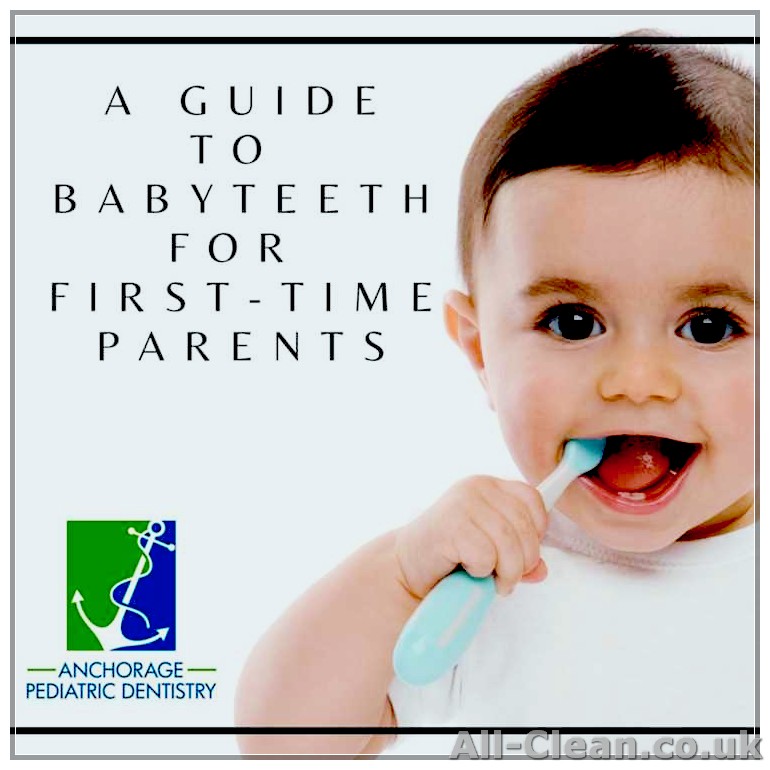
Here are some key nutrients and food items to include in your baby’s diet for healthy teeth:
- Calcium: Calcium is essential for strong teeth and bones. Include dairy products like milk, cheese, and yogurt in your baby’s diet.
- Fluoride: Fluoride is known to prevent tooth decay and is commonly found in tap water. If your water doesn’t contain fluoride, consult your dentist for fluoride supplements.
- Fruits and Vegetables: Fresh fruits and vegetables are rich in vitamins and minerals that promote healthy teeth and gums. Include a variety of fruits and vegetables in your baby’s diet.
- Whole Grains: Foods like whole grain bread, rice, and pasta are good sources of complex carbohydrates and fiber. They provide energy and nutrients for your baby’s growing teeth.
- Water: Water helps keep your baby hydrated and stimulates the production of saliva, which protects teeth from decay. Encourage your baby to drink water throughout the day.
Precautions to Take
Along with a healthy diet, taking these precautions can further promote your baby’s dental health:
- Cleaning your baby’s mouth: Even before the first tooth appears, gently wipe your baby’s gums with a soft, clean cloth or a finger brush to remove any particles.
- Using a soft-bristled toothbrush: Once their first tooth emerges, start using a soft-bristled toothbrush to clean their teeth and gums. Use a fluoridated toothpaste in a pea-sized amount.
- Avoiding sweet and sticky foods: Sugary foods and drinks can contribute to tooth decay. Limiting their consumption can help prevent dental problems.
- Avoiding pacifiers and baby bottles at night: Leaving your baby with a bottle or pacifier filled with sugary liquids at night can cause tooth decay. Instead, offer water or a pacifier without any added sugars.
- Regular dental check-ups: Schedule regular dental visits for your child, starting from their first birthday or after their first tooth emerges. A dental professional can provide guidance and identify any potential dental issues.
By following a healthy diet and implementing good dental hygiene practices, you can help keep your baby’s teeth strong and free from decay. Remember, prevention is always better than cure, and it’s never too early to start taking care of your child’s oral health!
Are Baby Tongue Cleaners Worth It?
When it comes to taking care of your baby’s dental health, toothbrushes are a given. But what about baby tongue cleaners? Are they worth investing in? Let’s find out.
The Positive Benefits of Baby Tongue Cleaners
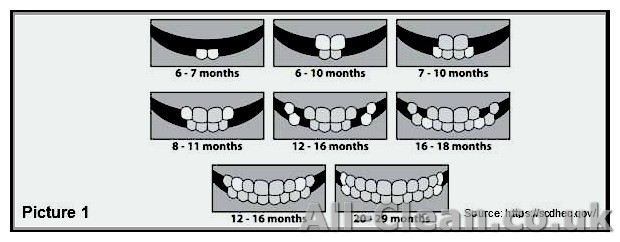
Used properly, baby tongue cleaners can provide several benefits to your little one’s oral hygiene:
- Removes bacteria: Tongue cleaners can effectively remove bacteria and food particles from the tongue’s surface, preventing bad breath and maintaining oral health.
- Improves taste buds: Clean tongues enhance the sensitivity of taste buds, enabling your baby to enjoy the flavors of different foods.
- Prevents tooth decay: A clean tongue can also reduce the risk of tooth decay by eliminating harmful bacteria and acids in the mouth.
How to Use a Baby Tongue Cleaner
To use a baby tongue cleaner, follow these steps:
- Start by choosing the right tongue cleaner. Opt for a soft silicone cleaner with a handle that fits comfortably in your hand.
- Hold your baby’s mouth open gently and stick out their tongue.
- Gently scrape the cleaner along the surface of the tongue, moving from the back to the front.
- Repeat this process a few times, rinsing the cleaner after each scrape.
- Wipe off any excess saliva or debris from the tongue cleaner.
- Finish by wiping your baby’s gums and teeth with a clean cloth or children’s toothbrush.
Potential Problems with Baby Tongue Cleaners
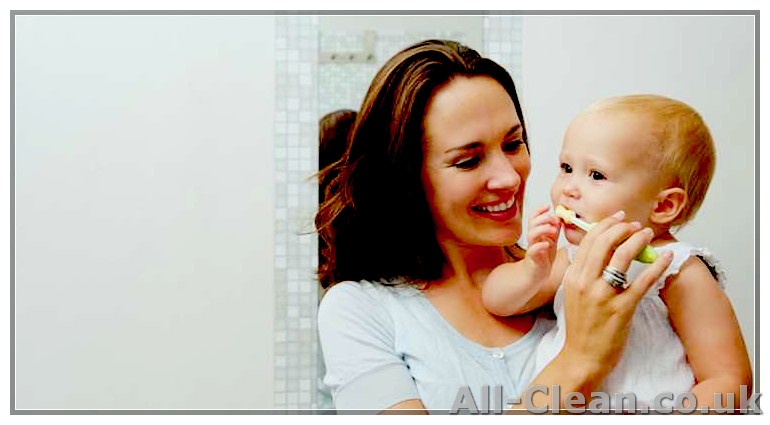
While tongue cleaners can be helpful, there are some precautions to consider:
- Be careful with babies under 6 months: Babies younger than 6 months often have a covering on their tongue that naturally peels off. Using a tongue cleaner during this stage may cause damage or discomfort.
- Watch out for rough or harsh cleaners: Some tongue cleaners may have bristles or surfaces that are too rough for your baby’s delicate tongue. Choose a soft and gentle cleaner specifically made for babies.
- Consult your dentist for evaluation: If you’re unsure about using a tongue cleaner or if your baby has dental problems, it’s best to consult a dental professional for guidance.
So, are baby tongue cleaners worth it? It’s safe to say that if used properly, they can be a helpful addition to your baby’s oral care routine. Just be sure to choose a gentle and appropriate cleaner, take necessary precautions, and follow dental professional recommendations. With proper care, your baby can have a healthy, clean mouth along with those adorable baby smiles!
